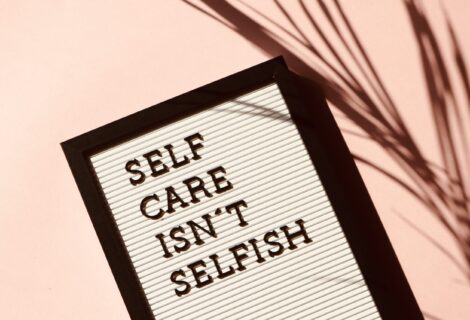Understanding the Impact of Social Media on Mental Health
Introduction to Social Media and Mental Health
Overview of Social Media
Social media, a revolution in the realm of communication, is a network of online platforms that allow individuals to connect, share, and interact with each other virtually. Platforms like Facebook, Instagram, Twitter, and Snapchat have changed the way we communicate, interact, and even perceive the world around us. Let’s explore further with “Social Media and Mental Health.”
Brief on Mental Health
Mental health refers to our cognitive, emotional, and social well-being. It affects how we think, feel, and act, playing a crucial role in handling stress, relating to others, and making choices in our daily lives. In this digital age, mental health issues are gaining recognition, and the dialogue around them is becoming more open and widespread.
Rise of Social Media Use
Popularity of Social Media Platforms
In the last decade, the use of social media has skyrocketed, becoming an integral part of our daily lives. The number of active social media users is staggering, reaching billions worldwide.
User Demographics
Social media use is prevalent across all age groups, but it’s especially popular among adolescents and young adults. It’s no longer a surprise to see a toddler navigating a YouTube video or a teenager hooked on Instagram.
Connection Between Social Media and Mental Health
Theoretical Background
The relationship between social media and mental health isn’t black and white. While some studies suggest a negative impact, others highlight the potential benefits. It’s a complex relationship that depends on multiple factors, including the individual’s personality, their social media use patterns, and their existing mental health status.
Preliminary Research Findings
Initial research indicates that excessive social media use can lead to increased feelings of anxiety, depression, loneliness, and poor body image. However, it’s also worth noting that social media can serve as a platform for individuals to express their feelings, seek support, and access mental health resources.
Positive Impact of Social Media on Mental Health
Connectivity and Social Support
Social media connects people from all corners of the world, fostering a sense of community and belonging. It offers platforms for individuals to share their experiences, seek advice, and receive support, especially those dealing with mental health issues.
Access to Mental Health Resources
Through social media, individuals can access a vast amount of mental health resources. This includes everything from informative articles and expert advice, to supportive communities and online counseling services.
Negative Impact of Social Media on Mental Health
Cyberbullying and Online Harassment
One of the most significant drawbacks of social media is the prevalence of cyberbullying and online harassment, which can have devastating impacts on an individual’s mental health.
Social Media Addiction
Excessive use of social media can lead to addiction, resulting in significant distress and interference with daily life. It can lead to sleep disturbances, poor academic performance, and strained relationships.
Social Comparison and Self-esteem Issues
Social media often portrays an unrealistic picture of reality, leading individuals to compare their lives with others. This constant comparison can negatively impact self-esteem and contribute to feelings of inadequacy and low self-worth.
Understanding the Psychology of Social Media Interaction
Fear of Missing Out (FOMO)
FOMO is a phenomenon where individuals feel an overwhelming sense of anxiety that they’re missing out on rewarding experiences that others are having. It’s often fueled by posts seen on social media and can lead to feelings of inadequacy and dissatisfaction.
Social Media and Body Image
Social media platforms are filled with images of ‘perfect’ bodies, often leading to body dissatisfaction and unhealthy eating behaviors in individuals, particularly among young women.
Strategies to Mitigate the Negative Impact
Mindful Use of Social Media
By being mindful of the time spent on social media and the content consumed, individuals can mitigate the potential negative impact on their mental health.
Digital Detox and Social Media Breaks
Taking regular breaks from social media or a complete digital detox can be beneficial in reducing stress and improving mental health.
Role of Parents, Educators, and Health Professionals
Monitoring Social Media Use in Adolescents
Parents and educators have a crucial role in monitoring the social media use of adolescents and guiding them towards healthy habits.
Promoting Digital Literacy
Promoting digital literacy is crucial to help individuals understand the potential risks associated with social media and to use these platforms responsibly.
Future Research and Conclusion
Need for Further Studies
There’s a need for more comprehensive and long-term studies to understand the complex relationship between social media and mental health fully.
Recap and Conclusion
While social media offers several benefits, it’s essential to use it mindfully to protect our mental health. Let’s embrace the positive aspects of these platforms while being aware of their potential downsides.
Have thoughts or experiences about the impact of social media on mental health? We’d love to hear from you! Comment below, share your stories, and discuss with others. Don’t forget to share this article with friends and family who could benefit from it. For more insights, tips, and discussions, subscribe to our Mindful Living newsletter. Let’s navigate this journey together!
Mental Health and Fitness: The Essential Connection
FAQs
- Does social media cause mental health problems? Social media itself does not cause mental health problems, but excessive or unhealthy use can contribute to issues like anxiety, depression, and low self-esteem.
- How can I use social media positively for my mental health? You can use social media positively by connecting with supportive communities, seeking mental health resources, and limiting your time spent on these platforms. It’s also beneficial to avoid comparing yourself to others and to remember that what you see on social media isn’t always an accurate representation of reality.
- What is social media addiction? Social media addiction is characterized by excessive use of social media platforms to the point where it interferes with daily life. Symptoms can include neglecting personal life, mental preoccupation with social media, mood changes, and inability to reduce use.
- How can parents help their children use social media responsibly? Parents can help by monitoring their children’s social media use, setting reasonable limits, discussing online safety, and encouraging healthy habits like digital detoxes.
- Are there any benefits of social media for mental health? Yes, social media can offer several benefits for mental health. It can provide a sense of community, offer support, and give access to mental health resources. It can also help raise awareness about mental health issues and combat stigma.








